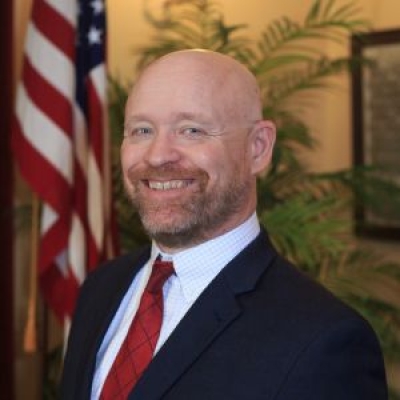Thank you Chairman Cupp, Ranking Member Phillips and members of the House Finance Subcommittee on Primary and Secondary Education for giving me the opportunity to present testimony on House Bill 64. My name is Chad Aldis, and I am the Vice President for Ohio Policy and Advocacy at the Thomas B. Fordham Institute.
In general, we are supportive of most of Governor Kasich’s proposed education changes. Some of the provisions that we believe are critically important include:
- Taking tangible steps to reduce the amount of standardized/state testing without weakening our state accountability system
- Providing regulatory relief to schools
- Moving toward reducing the impact of caps and guarantees in the state funding formula, as they distort the needs of districts and build funding inefficiencies into the system
- Opening the door (and providing funding) for schools to experiment with competency-based/mastery learning
- Strengthening the EdChoice voucher program
- Improving Ohio’s charter school sector
To expound a little bit on the charter reforms: Fordham has spent a significant amount of time over the past year looking at Ohio’s charter school sector and has sponsored national experts to study the state’s charter schools. With that research in mind, we believe that some of the provisions proposed by Governor Kasich are critically important, and we encourage the House to include the following:
- Requiring all charter sponsors to be approved by the Ohio Department of Education
- Improving the ability of ODE to take action against low-performing sponsors
- Allowing ODE to factor school quality into the equation when deciding whether it should sponsor a school itself
- Strengthening the independence of charter school governing boards by requiring independent treasurers/attorneys, as well as giving boards the right to fire charter operators without worrying about the repercussions that could arise if an operator were to appeal that decision
- Providing incentives, including financial incentives, for high-quality authorizers.
- Preventing sponsors from selling services to schools that they oversee
These are strong, much-needed reforms. We believe that by ensuring proper oversight of charter school sponsors and aligning incentives with performance, Governor Kasich is placing Ohio’s charter sector on a new and better path.
Despite our belief that HB 64 is generally strong, we want to call the House’s attention to a few provisions and offer recommendations to improve them.
1. This bill allows the Ohio Department of Education to sponsor an additional twenty schools per year. While this is likely necessary to ensure that quality schools aren’t closed when a poorly performing sponsor loses its right to sponsor schools, HB 64 doesn’t amend current law that allows ODE’s sponsor operations to add up to five new startup schools to its portfolio each year. This has the potential to blur the lines of responsibility, as ODE is already the overseer of sponsors. It’s unclear who oversees their work as a sponsor.
Recommendation: Continue to allow ODE to sponsor schools as a last resort and allow that only for a limited duration (less than two years). The provision in current law that allows ODE to sponsor five new schools per year should be removed.
2. This bill extends the Straight A Fund for another two years. We’ve been supportive of this program from the beginning. After seeing the first two grant cycles, we believe that the emphasis should be on innovation and its ability to increase student achievement—without as much focus on financial sustainability.
Recommendations: First, make clear in grant language that projects should primarily be judged on their ability to improve student learning long-term. Second, use approximately $6 million each year to create a startup fund for charter schools. This funding pool would require a rigorous application and review process and would award grants in the amount of $500,000 per school. This is essential to recruit high-performing charter schools to Ohio because our state doesn’t receive federal charter start-up dollars that many other states can access.
3. This bill imposes a limit on standardized testing of 2 percent of the hours a school operates each year. As noted previously, we support the governor’s initiative to address the testing issue. It’s not clear that the proper mechanism is to limit all testing to 2 percent.
Recommendation: The state should focus any testing limit on what the state requires; it should not place a limit on what districts are allowed to offer if they feel it will help their students and teachers. A limit of 1 percent of time spent on state-required testing in grades 3–8 would serve the same goal without infringing on local control.
4. This bill changes the objective measure in teacher evaluations from Student Learning Objectives to shared attribution. The goal to reduce testing is noble, and we believe that the significantly increased testing caused by SLOs offers mixed reliability. However, this solution moves away from the concept of individual responsibility and would likely be unfair to many teachers.
Recommendation: Ohio should continue with the law as written, but it should give districts and teachers the option of basing evaluations entirely upon principal observations when value-added measures or approved vendor assessments aren’t available. The General Assembly should maintain any requirements around transparency and improvement plans that apply to other evaluations under the Ohio Teacher Evaluation System (OTES).
5. This bill increases the amount of the EdChoice Scholarship in high school to $5700. This is a move in the right direction, but the funding amount in each of Ohio’s private school voucher programs continues to be an impediment to program growth.
Recommendation: Serious consideration should be given to increasing the funding amount for EdChoice and Cleveland voucher recipients to the base funding amount ($5900 in FY 16 and $6000 in FY 17). This would match the base funding amount for charter school students. Additionally, the current limit of $20,000 per scholarship in the case of the Jon Peterson and Autism scholarships makes it harder for students with the most severe disabilities to access the programs. The limit should be removed and those students funded at the same level as other students with similar needs.
6. This bill expands the Innovative School Waiver Pilot Program by an additional ten schools. While we’ve traditionally been very supportive of innovation, this effort’s focus on flexibility from state testing requirements seems misguided. Innovation should give districts flexibility to improve student outcomes, not to change measures; this is especially true when the measure is whether students can read and do math.
Recommendation: This provision should not be extended in its current format.
All in all, HB 64 contains some very promising provisions that should make a positive impact on education in Ohio.
Thank you again for the opportunity to speak with you today. I am happy to answer any questions that you may have.



